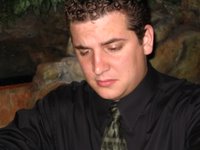
I am reading Victor Davis Hanson's "A War Like No Other" as I prep for teaching my 8th graders about the Peleponnesian War, and am very much enjoying his narrative. If you're looking for a book to help you relate extricate the morals of history and aid you in connecting with the ghosts of the past, I would certainly recommend it.
I am still in the beginning, but it is already an absorbing read. His explanation of Athens connection to modern America is enlightening, and examines some realities that I have often reflected on, without a proper frame of reference to guide me, not least of which is the question of why America is opposed by so many in the world.
I have long had my suspicions; growing up in a foreign country (especially one with a long history of colonization, both with and without the US) that it generally centers around envy: many who are not us wish they could be us, and since they cannot, hate us for being us.
Although this is something even VDH recognizes, also in play are the factors of the liberality of our society, and the unpredictable nature of a Free Government. We are an unknown quantity, and that is distressing to a world of known sums. Since WWII, America has filled the void of our potential with specific and material examples of our might and our ability to influence the world as we see fit.
For this, we are loathed. Which is odd, given how much good we do in the world.
And, odder still, those who stand as stark opponents to us are lauded. Chavez, Castro, Che (posthumously), Ahmadinejad...even Putin. They are celebrated as free thinkers and champions of a world that will not be ground under an American heel.
It is not because most of the world actually wants these individuals to be their leaders; if this were true, America would cease to be the center of so much of the world's power. But in the absence of another superpower (and sometimes even despite of another superpower...the Soviets were not unpopular during the Cold War in many elite circles, and are frequently spoken of with a certain amount of pseudo-admiration today) allows critics to fantasize that the freedoms and excesses of America are the cause of the world's ills.
I think it is the cost of being free. Freedom is alarming, and difficult to control. Citizens of a free society see tomorrows with potentials other citizens cannot begin to comprehend. This very fact creates an environment that puts others at odds with freedom.
Not unlike being a parent or a teacher or anyone responsible for growing children. The more they grow...the more they need to have responsibility for their own choices and lives, if they are to grow into fully functioning adults. Letting them experiment and learn how to make the right choices can be worrisome, to say the least...but without it, growth never happens.

No comments:
Post a Comment